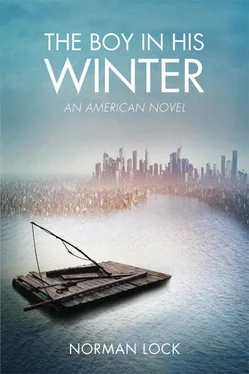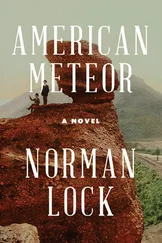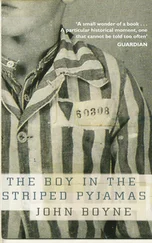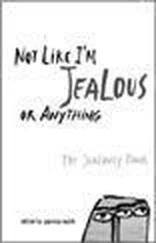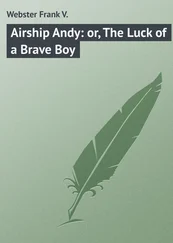I’ve said before, how I resent the idea that a will alien to my own should be in control of my life: providence, fate, destiny — call it what you like. And something about that moment when there seemed no other possibility than death by drowning has always worried me. Strange, isn’t it, that I would feel otherwise than jubilant thanksgiving for my rescue from drowning — by water? I continue, to this day, to be drowning in time and will do so until my last breath. Don’t think I’m ungrateful to have escaped a painful death. But my escape weakened my faith in chance and the lucky accident. You see, I prefer to think that my fortunes and misfortunes are either of my own doing or else the result of a broken cog or gum in the works — a broken data chain or genetic sequence (to be modern) — rather than by design, God’s or Mark Twain’s. I ought to have drowned! There was no other reasonable outcome after being knocked from a raft into the water during a category-three hurricane. But I didn’t drown, because at the very instant I reached the surface, a crate was waiting for me. And I heaved myself up on it.
Yes, I said “waiting,” for so it seemed then and seems even now, seventy-two years after the fact. When I say “waiting,” I’m not suggesting that the crate was motionless during the upheaval. It was moving downriver, like me. (It’s more remarkable, by far, for two things in motion to intersect.) I was saved by the confluence of the crate and myself, and a moment later both were caught in the backwash of a sixteen-foot wave, transported onto land, and set down, with amazing delicacy, among the tombs and monuments of Venice’s only cemetery. And yet I was not dead! The crate had entered the Mississippi at Minneapolis decades earlier (fallen from a pier or loosed into the water after a shipwreck) and had made its long way downriver to Venice, with the intention of lending me its buoyancy. I might just as easily say I’d been thrown into the river in order to give meaning to the “life” of that crate. See how absurd the notion of predestination is? Yet circumstantial evidence screams to me that it is so. The complicated machinery of fate was put in motion for my no-account self.
I slept in a narrow space between two gaudy sepulchres, sheltered from the brutality of the storm. The cemetery was a little above sea level, though not enough to allow for graves to be dug. The dead rested above ground, immured in brick and stone, as they must when buried near water. Whether from exhaustion or from the shock of having been expelled from childhood (how else explain so deep and unnatural a sleep?), I didn’t wake until the storm had moved seventy-five miles northwesterly into New Orleans. I woke with a start and shivered as with cold, my pockets filled with crumbs of time like sand in those of a drowned man washed up on a beach. I was once again alive in the world, which I had not been all the long while I did not age or change.
When I was on the raft, I had moved from one incident to another. But they were not demarcated clearly the way they are in this memoir, which must seem to obey a chronology or it cannot be told. But those incidents — so colorful in the telling — did not impress me at the time with their particularity, but instead were experienced — like the river down which I floated — as a steady lengthening from an increasingly far-off past. For a long while after making landfall, I felt my past tugging at me, like a fishing line that stretched back to Hannibal in the 1830s, its hook rankling at the corner of my mouth. Unlike a fish, I didn’t resist — didn’t seem to feel the present. I was immune to its contagion, and if I pictured a future, it was only a vestige of my old dream of Mexico, which I had not relinquished.
The rain stopped, and the charcoal clouds unraveled in the departing wind. Where all had been drowned by noise of wind and rain, the sound of the world at peace flooded back: gulls rowing the blue air from their inland retreat, the fitful breeze stirring the unfallen cypresses, and river water rattling over stones. It was as though the summer once again drew breath.
With a flat gray rock, I battered open the crate that had buoyed me to safety. Inside, I found clothes, shoes, socks — all of it made as if for me, so well did they fit. There was also a first edition of The Adventures of Huckleberry Finn , published, according to the colophon, in London by Chatto and Windus in December 1884. Despite an origin fairly remote in space and time, the book appeared to be newly printed and had suffered not at all by the crate’s lengthy river journey. I opened to the first page and read there words pretending to be mine: You don’t know about me, without you have read a book by the name of “The Adventures of Tom Sawyer,” but that ain’t no matter. That book was made by Mr. Mark Twain, and he told the truth, mainly. I read no farther and under no circumstances would I have turned to the last page.
Enraged, I threw the book into the river. I would have burned the damned thing had I a match, but the box of locofocos had been lost, together with everything else Jim and I had brought with us from Hannibal. Burning the book, I felt, would declare my outrage emphatically, might even remove it absolutely from existence, as if there’d never been a book by that title or an author by that name — so naïvely did I reason. But I had no match! I watched the book slowly turning in an eddy, its hard covers spread on top of the brown water like wings. I waited for it to sink, but the damned thing remained afloat and soon had escaped the gyre and was off downriver — a bird of evil omen. I threw stones at it, but my aim was poor; or else it was endowed with an intelligence native to books that eluded my fusillade or was under the protection of providence, that infernal engine, and could not, for reasons known to it, be sunk — at least not by a mere boy who only now understood the feebleness of his human presence in time. In a short while, the book was beyond the reach of my stones and of my influence — slipping toward the Gulf. Perhaps it would reach Mexico, I thought, when Jim and I had failed. I cursed it and Mark Twain both for their presumption. What did either know of my life’s adventure or of Tom’s? No more than I had known Jim’s thoughts or might know those in the brain of a dog. I despised the book and its words, which had been set out like a trap to take my freedom. I promised myself I would act in a way to guarantee my self’s independence. I couldn’t have known that — twist and squirm as I might — my course was set. I’d be the man Huck Finn would most certainly have become in the age following the last sentence of Twain’s book. At least for a while. Given the age, which was fallen and corrupt, and given the experiences — innocent and also sinister — that had shaped my character, I could be nothing else.
What did you say?
No, no, I did finally escape the life that had been given me to lead until its final agony or surprise. I’m changed — maybe not greatly changed, but enough. Enough to matter in the case of my life — the occasion of it. I swear I am!
What changed me?
The usual things. Love, if only in a small way. (You cannot depend too much on love. It is something else than a means to your transformation. It’s a selfish idea to believe otherwise.) Love changed me a little, and also the world did, as it can when it strikes fire against the mind’s flint. And I was changed, too, by something that I will insist, always, was accidental: an instant of senselessness and absurdity when I fulfilled the river’s purpose and my own.
PART TWO. August 29, 2005–September 11, 2005
I NEVER GOT TO MEXICO, BUT MEXICO, as it turned out, came to me: a morsel of its fecundity, indifferent to our well-being, wrapped in plastic, with a street value well over $800,000. At the time, I had no knowledge of this brand of smuggling by water or of the vernacular favored by an outlaw economy flourishing in the twenty-first century. I was thirteen, remember. A boy who’d been floating through life — his life, at a safe distance from current events.
Читать дальше
